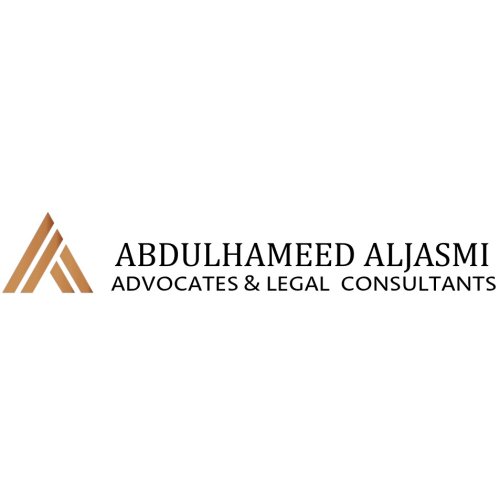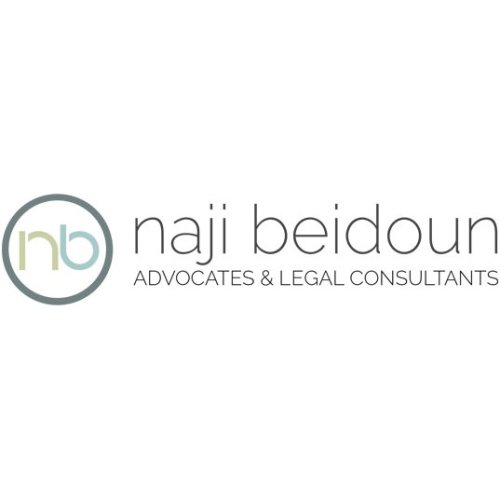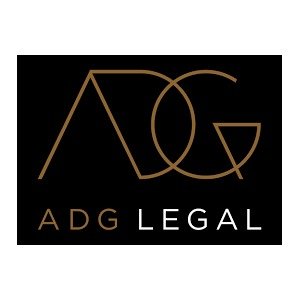Best Acquisition / Leveraged Finance Lawyers in United Arab Emirates
Share your needs with us, get contacted by law firms.
Free. Takes 2 min.
Or refine your search by selecting a city:
List of the best lawyers in United Arab Emirates
About Acquisition / Leveraged Finance Law in United Arab Emirates
Acquisition and leveraged finance refers to the funding of company takeovers or asset purchases, often involving significant amounts of borrowed money. In the United Arab Emirates, this area of law is shaped by both federal legislation and the rules of the various free zones, such as the Dubai International Financial Centre (DIFC) and Abu Dhabi Global Market (ADGM). Leveraged transactions in the UAE may involve cross-border elements, syndicated lending, and the use of complex security structures. Legal frameworks have been modernized in recent years to support investment and corporate activity, but the nuances of structuring, documentation, and regulatory approval are critical to the success of such transactions.
Why You May Need a Lawyer
Acquisition and leveraged finance transactions are often complex, involving multiple parties, large sums of money, and diverse legal issues. Common scenarios where legal help is vital include:
- Negotiating and drafting loan agreements and security documentation
- Advising on regulatory requirements, including approvals and compliance
- Structuring the acquisition to maximize advantages and minimize risk
- Conducting legal due diligence on target companies or assets
- Dealing with cross-border elements, such as foreign lenders or offshore guarantees
- Resolving disputes or enforcing security in the event of default
- Advising on Islamic finance alternatives in compliance with Sharia law
Having a lawyer with experience in UAE acquisition and leveraged finance can help you avoid costly missteps and ensure your interests are protected.
Local Laws Overview
The United Arab Emirates has a mixed legal system comprising civil law principles, specific federal statutes, and, in some zones, common law influences. Key aspects relevant to acquisition and leveraged finance include:
- Banking Regulation: Finance providers must comply with the requirements set by the UAE Central Bank, including licensing and lending conduct.
- Security & Collateral: Rules regarding mortgages, pledges, and assignments are primarily found in the UAE Civil Code, with additional provisions in commercial and financial laws.
- Free Zone Regulations: Areas like DIFC and ADGM have their own regulatory frameworks, often based on English law, which can offer more familiarity to international investors and lenders.
- Foreign Ownership: Recent legal reforms now allow higher levels of foreign ownership in many sectors, but restrictions may apply in strategic industries.
- Islamic Finance: Sharia-compliant finance follows specific legal structures, such as Murabaha or Ijara, which differ from conventional loans.
- Enforcement of Security: The UAE continues to update its laws to streamline secured lending and enforcement, but practical challenges can remain.
It is important to assess which laws apply, especially in transactions spanning onshore and free zone jurisdictions.
Frequently Asked Questions
What is leveraged finance?
Leveraged finance refers to borrowing funds, usually through loans or bonds, to acquire a business or assets where the level of debt is relatively high compared to the borrower’s equity.
What types of entities can provide acquisition finance in the UAE?
Banks licensed by the UAE Central Bank, international banks with local branches, financial institutions in free zones, and special purpose vehicles can all provide acquisition finance, subject to regulatory approval.
Are there any restrictions on foreign lenders participating in UAE acquisitions?
There are no absolute prohibitions but there may be restrictions related to the provision of loans, enforcement of security, and repatriation of funds, depending on whether the financing is onshore or in a free zone.
What security can a lender take in an acquisition finance deal?
Common forms of security include share pledges, mortgages over real estate, assignments of receivables, and charges over bank accounts, subject to registration and perfection requirements.
Is it necessary to obtain regulatory approvals for an acquisition financed with debt?
Depending on the structure of the deal and the sector involved, approvals from regulatory authorities such as the Central Bank or sector-specific regulators may be required.
How does Islamic finance impact leveraged acquisitions in the UAE?
Islamic finance requires transactions to comply with Sharia principles, so acquisition finance may use profit-sharing or asset-based contracts instead of traditional interest-bearing loans.
Can guarantees be provided by UAE companies for acquisition finance?
Yes, but there are restrictions under the UAE Commercial Companies Law, especially regarding the granting of financial assistance by target companies for their own acquisition.
How long does it take to enforce security in case of default?
The timeframe varies depending on the type of security, the jurisdiction (onshore or free zone), and whether court involvement is required. It can range from a few weeks to several months.
Are acquisition finance agreements in the UAE typically governed by local or foreign law?
Agreements may be governed by UAE law, English law, or the rules of free zones like DIFC or ADGM. The choice depends on the parties, structure, and location of the assets or shares involved.
What are the typical costs involved in an acquisition finance transaction?
Costs may include legal fees, lender fees, registration charges for security interests, due diligence expenses, and, where relevant, government or regulatory fees.
Additional Resources
- UAE Ministry of Justice - responsible for judicial affairs in the UAE
- UAE Central Bank - regulates financial institutions and banking operations
- Dubai International Financial Centre (DIFC) Authority - oversees the DIFC legal framework
- Abu Dhabi Global Market (ADGM) - offers guidance on common law financing structures
- Local Chambers of Commerce - provide business and corporate regulatory advice
- Reputable local and international law firms specializing in banking and finance
Next Steps
If you are considering, planning, or facing challenges in an acquisition or leveraged finance transaction in the UAE, consider the following actions:
- Identify your goals and the parties involved
- Document all available information about the target business or assets
- Consult with a legal advisor experienced in UAE acquisition finance at the earliest opportunity
- Determine the applicable laws and regulations for your specific transaction
- Assess available finance options, including conventional and Islamic structures
- Ensure all required approvals, consents, and filings are secured in advance
- Retain professionals for due diligence and document negotiation
- Regularly review ongoing compliance obligations post-completion
Early legal advice can help prevent delays, manage risks, and facilitate a successful transaction in the dynamic UAE market.
Lawzana helps you find the best lawyers and law firms in United Arab Emirates through a curated and pre-screened list of qualified legal professionals. Our platform offers rankings and detailed profiles of attorneys and law firms, allowing you to compare based on practice areas, including Acquisition / Leveraged Finance, experience, and client feedback.
Each profile includes a description of the firm's areas of practice, client reviews, team members and partners, year of establishment, spoken languages, office locations, contact information, social media presence, and any published articles or resources. Most firms on our platform speak English and are experienced in both local and international legal matters.
Get a quote from top-rated law firms in United Arab Emirates — quickly, securely, and without unnecessary hassle.
Disclaimer:
The information provided on this page is for general informational purposes only and does not constitute legal advice. While we strive to ensure the accuracy and relevance of the content, legal information may change over time, and interpretations of the law can vary. You should always consult with a qualified legal professional for advice specific to your situation.
We disclaim all liability for actions taken or not taken based on the content of this page. If you believe any information is incorrect or outdated, please contact us, and we will review and update it where appropriate.
Browse acquisition / leveraged finance law firms by city in United Arab Emirates
Refine your search by selecting a city.

















